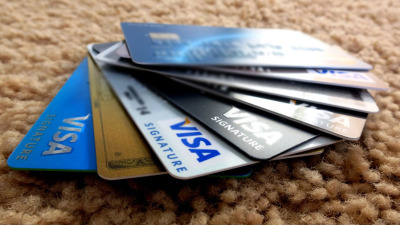DISCLAIMER: Miles to Memories & the author are not credit providers and do not provide personal financial or professional advice or credit assistance. The information published on this site/page is of a general nature only and does not consider your personal objectives, financial situation or particular needs. All information published here is my own personal opinion and comes from personal experience. The information published on this site/page should not be relied upon as a substitute for personal financial or professional advice. Miles To Memories and the author strongly recommend that you seek independent advice before you apply for any product or service, which is described on the site/page.
Your Questions Answered
For the past week I have been asking readers to send in their questions so I can answer them. Here are the related posts:
- Your Questions Answered – Most Common Points & Miles Acronyms
- Credit History with Converted Accounts, Max Number of Amex AUs, Money Orders at Walmart & More
- Ink Bold or Plus, Paying for Someone Else’s Global Entry & Shopping Portal Clawbacks after Returns
- Credit Card Churning – How to Decide Which Cards Stay & Which Cards Go
- Parking Money in Bluebird, Personal Expenses on a Business Card & Funding Checking Accounts with a Credit Card
- MS at Staples or Grocery Stores, Non-Chase Card with UR Portal & Amex Platinum Airline Credit
If you want to get your question answered, simply head over to this post and leave the question in a comment. I am working to get through most of them this week.
Question 1
Our first question comes from Elvis:
I am new to the MS world and worried about being shut down by Chase/Amex. Do you know the spend limit of each card such that I can fall off the radar? Can you also share your experience to spread balance across your credit cards?
This is a great question and references something I know a lot of people worry about. Getting shutdown. The good news is I don’t think people who are reasonable have much to worry about given my personal experience, but the bad news is I can’t give you a specific limit or strategy.
Banks are going to determine their threshold for risk when it comes to your relationship based on a number of factors including your overall credit and income. Income is big, because if you list a $30k annual income but spend $20k a month, then they may notice something is wrong. American Express has been known to do a financial review if they are suspicious. This involves you proving your income which is why you shouldn’t lie on an application.
Some good common practices involve not acting like a risky customer. For example, customers who are always charging close to their limit are more risky for default. Try to start slow and use common sense. If you only have one card with a bank and it has a $2k limit, don’t recycle that limit multiple times each month or you may be at risk of shutdown. Build your relationship with the bank and try to be a profitable customer to them. i.e. Use your card for normal purchases!
Have you ever wondered why some people can get 10 or more Chase cards? It is because they slowly built a relationship with Chase. If you have never had a card with them, don’t expect to get 10 cards in a year. Banks like their loyal customers, especially if they have a proven track record. To sum up my advice, start slow, build the relationship and use common sense.
Question 2
Our second question comes from Deanna:
A lot of travel blogs recommend applying for a business card, without a business identification number. How does applying for a business card effect your personal credit score/if at all? How do they determine an approval? For example, a month ago, I did an AOR but I’ve since learned that the Chase Ink sign up bonus is likely disappearing. Is it worth trying to apply for a business card, if it may be likely I’ll get denied (because of my recent credit pulls)?
First off, don’t worry about what a lot of blogs recommend. You should do what is right in YOUR situation. From a general point of view, you do need some sort of business to apply for a business card. With that said, many banks will approve you for a new business card with limited or no income. You also don’t need an employer identification number if it is a sole-proprietorship. Just use your social security number on the application.
Business cards are actually unique since they do not show on your personal credit report. The only effect applying for a business card has on your credit is the initial pull. (You are still of course responsible for paying, so if you default it will show on your credit as well.) The way a bank generally determines a business card approval is based on your personal credit, your business type and length, your personal income and your business income. Every bank has their own criteria of course.
I can’t tell you whether or not you should apply for the Chase Ink Plus or Cash, however the bonus is not going away. Currently the Plus has an increased bonus of 60k and the Cash has an increased bonus of 30k through 5/25/15. After that the bonus should return to the normal levels of 50k and 20k respectively, although I wrote that there is some evidence that the Ink Plus bonus may get reduced further.
My best advice when it comes to anything regarding personal finance, credit cards or this hobby in general is to take it slow. If you don’t get in on this special offer then there will be another one. It generally is not a good idea to do something that you are not comfortable with just for a few extra points.
Conclusion
There are quite a few more questions left to answer and I’ll be trying to get to a few each day. If you want your question answered then please leave a comment here. Also, feel free to chime in with your experiences and opinions about any of these questions in the comments! Have a great weekend!
| Miles to Memories operates under the Value for Value model. If you receive value from this site, find out how you can provide value back. |
|---|






“Don’t recycle the limit multiple times”, can you elaborate?
For example if you have a $5k limit on a Chase Ink card, but decided to spend $20k at Staples in your first month, then you will have recycled that limit 4 times. Basically it means charging up the limit and paying it off multiple times in the same month.
Wow never thought of that. I see your point. Thanks for all your tips. Appreciate your blog.
Wow hadn’t thought of that. Thanks for all your help. Appreciate your blog.
Thanks, Shawn. For those who DO have an EIN, does the bank still cross reference my personal credit if my company is an LLC? I imagine it is not relevant if you are incorporated, but wasn’t sure with an LLC since business taxes are filed with my personal taxes. Thanks!
Small business cards generally require personal liability so they will run your personal credit no matter what. Basically you are agreeing to be responsible for the charges which is why they run your credit. Some corporate cards require the company be fully liable, but that isn’t how small business cards work. For the scope of what I’m talking about here, yes they will always run your personal credit.
Nice work using a graphic of an ink card that isn’t offered anymore
You make a good point. I hadn’t looked close enough and thought it was the newer one of the Ink Cash/Plus.
Thanks Shawn. Great advice here. I have 720 CR and applied for an ink plus based on the 60K rewards with my real business, but because I’m relatively new to credit cards and the business income is only in the thousands, they denied me. Multiple calls to recon didn’t help. I wish I had just waited. No need to chase sign up bonuses unless you’re ready.